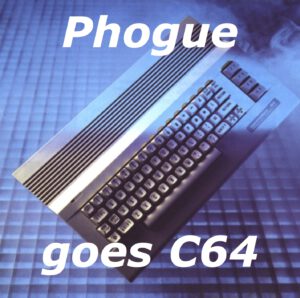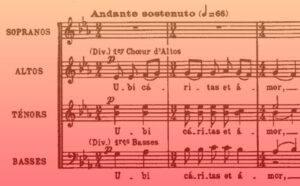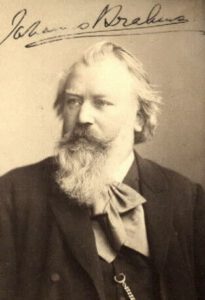 Electronic music has fascinated me, at least since I heard Tangerine Dream for the first time. When I bought a Commodore C64 (I love it), the “Music Assembler” from the Dutch USA Team was my killer app. The sequences actually had to be entered in hexadecimal values, but the result was worth all the effort: The sound chip of the C64, its filters and the typical “purring” 8-bit sound are just awesome!
Electronic music has fascinated me, at least since I heard Tangerine Dream for the first time. When I bought a Commodore C64 (I love it), the “Music Assembler” from the Dutch USA Team was my killer app. The sequences actually had to be entered in hexadecimal values, but the result was worth all the effort: The sound chip of the C64, its filters and the typical “purring” 8-bit sound are just awesome!
Here is one of the 6 pieces that I wrote for my self-programmed C64 implementation of the well-known dice game “Kniffel” (German for “Yahtzee”):
“Phogue – Kniffel 5”
 “Where there is goodness and love – there is God” – WHAT a sentence! And in my opinion it doesn’t matter what you call God. The piece “Ubi caritas” (that is in Latin “Where there is goodness”) is based on a Antiphon that was made before 800 AD!
“Where there is goodness and love – there is God” – WHAT a sentence! And in my opinion it doesn’t matter what you call God. The piece “Ubi caritas” (that is in Latin “Where there is goodness”) is based on a Antiphon that was made before 800 AD!
I first heard “Ubi Caritas” in a version of Liz Story – and a shiver ran down my spine. Liz Story’s version is based on the note set by Maurice Duruflé. From this very set I created my own version – with completely synthetic instruments from the extensive collection of Apple’s Logic Pro X! – no sacrilege for me, because what matters is what comes out of it and whether you feel something:
“Phogue – Ubi Caritas”
 Lyle Mays died on February 10, 2020. When I heard this three days later on a radio broadcast on Deutschlandfunk, I was very sad. Lyle Mays was guitarist Pat Metheny’s congenial pianist for decades, and their music means a lot to me. It is one of the best proofs that music that sounds so warm, as if it comes straight from the heart, can be created with a lot of programming and electronics.
Lyle Mays died on February 10, 2020. When I heard this three days later on a radio broadcast on Deutschlandfunk, I was very sad. Lyle Mays was guitarist Pat Metheny’s congenial pianist for decades, and their music means a lot to me. It is one of the best proofs that music that sounds so warm, as if it comes straight from the heart, can be created with a lot of programming and electronics.
Lyle Mays was a great pioneer in this regard, he controlled electronic sound generators with his acoustic grand piano and developed a distinctive, wonderful sound with Pat Metheny.
With the sad news still in my ear, I sat down at my KORG 01/WFD at night – and just let it flow. Without even wanting to compare myself with him, I involuntarily did something, as if bowing to the deceased, which comes close to the production method of Lyle Mays: The whole thing is created live in one take (no multi-track recording, no post-processing) , I play on the KORG (the synthesizer sound), but at the same time control an electric piano sound from Logic Pro X with the same note:
“Phogue – Goodbye Lyle”
PS: I intentionally set this track to “endless playback”. If you have trouble sleeping, you can let it go and lie down 🙂 …
 A rather complex, but extremely interesting project was the complete implementation of the 4th Symphony by Johannes Brahms in the version for 2 pianos – in Garage Band! Since I am happy when I can play relatively easy, short sheet music by Bach, Mozart or Debussy with some fluency and error-free, a live recording was out of the question, because this sentence demands EVERYTHING from both pianists!
A rather complex, but extremely interesting project was the complete implementation of the 4th Symphony by Johannes Brahms in the version for 2 pianos – in Garage Band! Since I am happy when I can play relatively easy, short sheet music by Bach, Mozart or Debussy with some fluency and error-free, a live recording was out of the question, because this sentence demands EVERYTHING from both pianists!
So I entered the entire sentence note for note in four voices and once again came across the basics of music: Where and why do I slow down the tempo, get quieter and louder? What belongs together? Where is tied or rather “staccato” played?
I discovered Brahms for myself relatively late – but then! As beautiful as the 4th symphony is already in the orchestral version, the implementation for 2 pianos has its very special charm due to the very clear spatial separation of the (only) two instruments that I wanted to reproduce in the mix, too. For the sound sampling I decided on the large Boesendorfer grand piano, from the symphony you hear the 2nd movement, which traditionally has a slow tempo, here an “Andante Moderato”:
“Johannes Brahms – 4. Sinfonie II Andante Moderato
(by the Phogue & Garage Band)”

